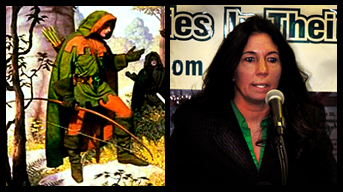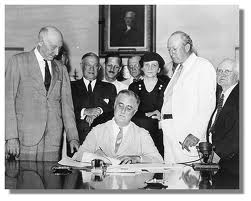Some men rob you with a six gun.
Some do it with a fountain pen.
“Pretty Boy Floyd”
Woody Guthrie
_____________________
We hear a lot about what democracy means in America. In the case of the Cheri Honkala Green Party campaign for Sheriff of Philadelphia, what democracy means is recognizing that the selective enforcement of laws is a reality in our history and, then, offering voters the real choice of a sheriff who will not enforce foreclosure orders in a depressed economy.
Honkala is a well-known poor people’s activist in Philadelphia who, over the years, has organized large street demonstrations and even gotten herself arrested many times occupying homes and doing other actions to call attention to the plight of the poor. She was raised dirt poor in Minnesota and she has worked lots of unpleasant and dreary jobs to survive. Her first-born son, Mark Webber — born when she was age 16 and living in a car — is a successful Hollywood actor.
Some say Honkala is not serious and is out to destroy good government. One writer in Philadelphia referred to her in his headline as an “outlaw” and in his lead as “Philly’s most famous embodiment of grass-roots guerilla protestdom.”
 Robin Hood and Cheri Honkala
Robin Hood and Cheri Honkala
I prefer to use one of the most famous sheriff references in world literature. I see Cheri Honkala as Robin Hood. Instead of running around in green tights and using bows and arrows to engage the wicked Sheriff of Nottingham, she’s using the ballot box to take the Sheriff of Nottingham’s job.
The central plank of Honkala’s campaign is a determination to stop the evictions of poor and middle-class homeowners whose mortgages have been foreclosed on by banks and lenders. There’s no mystery or sleight of hand; anyone who votes for Honkala knows what he or she is voting for: A revamped Sheriff’s Office with a new mission to counter the pirate-style economics of the moment.









